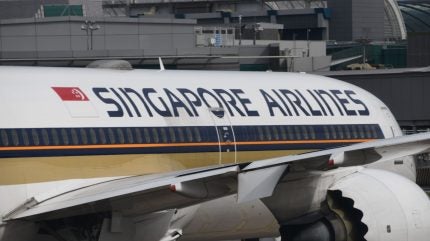
Singapore Airlines has begun offering compensation to passengers onboard a flight which experienced severe turbulence in May, leading to the death of one person and injuries for many more.
The company said it had offered $10k to passengers with minor injuries and would issue those with more severe injuries an advance payment of $25k, alongside an invitation to discuss an offer suited to their condition.

Discover B2B Marketing That Performs
Combine business intelligence and editorial excellence to reach engaged professionals across 36 leading media platforms.
All passengers on the plane have also been offered full refunds of their airfare and will receive delay compensation in line with EU and UK regulations, on top of the roughly $700 given to passengers at the time for help with immediate needs.
The airline’s Boeing 777 was carrying 211 passengers and 18 crew members during the affected flight from London to Singapore on 21 May, when a 73-year-old man died of a suspected heart attack after severe turbulence over Myanmar.
According to a preliminary report from Singaporean investigators, the plane dropped 178ft in altitude in around five seconds, experiencing a change in acceleration from negative 1.5G to positive 1.5G.
Singapore’s offer falls in line with what is required of the company under the international Montreal Convention rules, which makes airlines liable for any accidental physical injuries experienced on board their flights, regardless of negligence from the airline and covering issues such as turbulence.

US Tariffs are shifting - will you react or anticipate?
Don’t let policy changes catch you off guard. Stay proactive with real-time data and expert analysis.
By GlobalDataPaul Hudson, president of the airline passenger advocacy non-profit FlyersRights, told Airport Technology that customers can sue an airline to potentially receive more money within the $175,000 limit of the convention, so the Singapore passengers could push for greater compensation.
He said: “This offer accordingly can be viewed as a first offer and should, in our view, not be accepted unless it does not require a waiver of additional liability.”
The issue of airline liability for passenger issues has become particularly prevalent in recent years as major regulators in the US and EU push for the aviation industry to hold more responsibility for the care of passengers.
For example, the US Department of Transportation recently revealed new rules that would see airlines forced to pay automatic refunds to passengers affected by cancelled or significantly altered flights.





